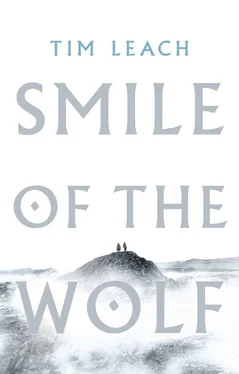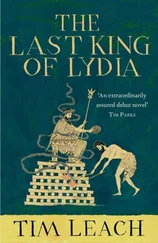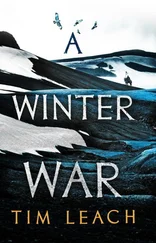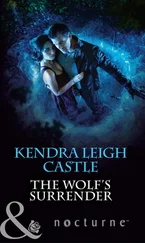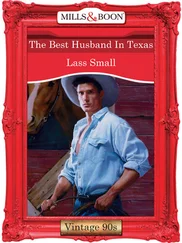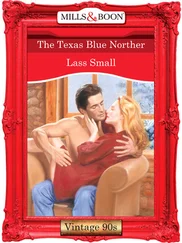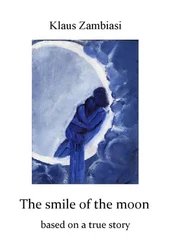‘I heard rumours of what went on in that place. Whispers, gossip, and I thought nothing of it. He was my brother. I loved him.’
He dipped his horn cup in a pail of melted snow and drank deeply.
‘I was in his longhouse,’ he said, ‘in summer. I had come to visit him, but he was out hunting seals with his men, so I sat down to wait. His wife gave me bread and ale, and we sat together by the fire for a time. We spoke. I do not remember what we spoke of. Then she turned to me and she asked if I would help her to die.’
He drank the water again and I thought of those men who are cursed with an endless thirst, first for water, then for blood.
‘I told her to go to her father, to seek a divorce. It was her right. But my brother was a powerful man. He had earned the father’s favour, and her father would not help her. So she went back to my brother. And none of her kin would help her.’ He lifted his eyes to us. ‘I do not wish to speak any more of this.’
‘Speak on,’ Thorvaldur said, his voice soft. ‘You have come this far.’
Thoris nodded, like a man half asleep. He said: ‘There were those amongst her kin who spoke of killing him. But they were hollow words. I knew that they would not do it. They did not have the courage. And my brother had many men who were loyal to him. Brutes like him always do. It is the good men who stand alone.’ He placed his horn cup upon the ground and I saw his hand tremble a little. His right hand, his killing hand. ‘But he would let me in to his longhouse at night. He trusted me. And why not?’
I risked a question. ‘You could have challenged him to the holmgang ,’ I said.
I thought that he would shout at me – perhaps even that he would come for me, blade in hand. But he nodded and said: ‘That would have been the honourable thing. But what if I had lost? He was a berserker. A better warrior than I. Then she would be alone, with no one to help her.’
I was afraid that he would weep. For I was sure that he would kill us if we saw him weep, to leave no witness to his shame. But he breathed deep and spoke again.
‘I waited until all were asleep and I went towards his chamber. He was a wealthy man, with a room to himself. Too proud to share the hall with other men.’ He laid a hand to the weapon on his belt. ‘This knife in my hand.
‘But when I opened the door, I found that someone had been there first.’ He shuddered. ‘I could feel the blood soaking through a hole in my boot, still warm against the skin. I could smell it in the air, like fresh-forged iron. And on the bed, my brother and his wife.
‘I could see his throat open. Torn out, as if some wolf had been let loose in that room. Three wounds in his chest, though none that could have killed him. They were no practised killer’s wounds. Whoever had done them had learned to murder in that moment.
‘She was there beside him. The blood so heavy upon her that it was as though she had been flayed. I thought that I had come too late, that some dark magic had been brought into that room and torn them both to pieces.
‘But she moved. Her eyes were so white against the blood. And I knew then what she had done. Her left hand had been bitten. Down to the bone. For she had to keep him silent or we would have heard her.
‘We did not speak. I could not risk the words. I sat down beside her, felt the blood soak into my tunic. I took her hand in mine.’ And he clasped both of his own hands together – imagining, perhaps, that once more she was with him. ‘What would they have done to her?’ he said, speaking only to himself. ‘I do not know. Our laws make no account for a woman who kills. She would have been beyond the law, as we are now. And anything can be done to such a person.
‘So I took her away from that place, and I let men talk. I let the story grow and become what it is now. And you know what remains of it.’
‘What happened to her?’ Thorvaldur said.
‘She came with me. To this place.’ He reached out to touch the walls of the cave, to touch some memory of her that might still live there. ‘I asked her not to, to go to her kin or travel to some other place. To live as a servant, a slave, rather than be an outlaw’s wife. Anything seemed better than that. But she would not go. She lasted three winters. She grew weaker and sicker with each one. But she would not leave.’
He looked beyond us, out towards the entrance to the cave, to the falling snow beyond.
‘She is buried in this valley,’ he said.
That was the end of the story. If had sung it in a song or told in a saga that would be the place that my voice would fall silent.
‘There is something more,’ Thorvaldur said. ‘Something that you are not telling us.’
‘I have told you everything.’
‘No. There is more. And I think that you wish to speak it.’
Thoris’s head rolled back, twisted away from us, the way a man in fever will contort himself, seeking somehow to escape his own body, the body that tortures him.
‘I do not know what kind of a woman she was,’ he said, the words drawn out like poison that is sucked from a wound and spat upon the ground. ‘That she could do such a thing. What kind of a man I am, who would love his brother’s killer.’
Thorvaldur nodded, satisfied. This, it seemed, was his ending. The Christian ending that he sought. ‘I thank you for this,’ he said.
There was no absolution from Thoris. No relief at telling the truth. Only the sullen air of a man who feels that he has been deceived.
‘There,’ he said. ‘You have had your story. Now, give me yours.’
Thorvaldur began to speak once again. Of God, of forgiveness, of redemption. I did not listen. I looked out on the valley and listened to the call of the wind, and wondered where it was that she was buried.
I had always wondered how an outlaw might know the day of their return. Those who flee abroad or have the wealth to make fortresses of their homes will know the date well enough. But what of men who flee to the ice and make their homes in the dead valleys?
For most, it does not matter. They die long before their day of freedom – starving or frozen, or dead on the spears of the men who hunt them. But what of those who do survive their three years? In all the stories that I have heard, it is never spoken that an outlaw comes back a day late.
Perhaps there were outlaws who had counted or marked every day, keeping their time with the greatest precision. Or did they have another art? I have heard of men in distant lands who may read the date from the movement of the stars.
No man would want to linger in outlawry any longer than he had to, yet it would be death to return before the time. Had a man ever come back a day too early and died upon the sword of the first man he greeted, hearing his mistake as the darkness closed over him?
No, before I was an outlaw I did not know how those men could know when they should return. And yet when my time came, I knew it without a doubt.
I felt the shifting of the seasons and knew that it was the late summer of my third year. I had thought that I would have to wait until snowfall to be certain of the time, to waste a month in the agony of waiting so that I could be certain. But I knew the day itself when it came.
It was no guesswork or a counting of the days. Nor was it blind luck, and I do not think it was the work of a god. It was memory alone that told me that I could go home.
There was so much that I forgot of those three years as an outlaw. There was so little to remember. Yet I remembered everything of the day I had been outlawed. The precise curve that the sun had taken through the sky. The pattern of the sunlight on the sea. The exact ripeness of the crops in the field, so that I could have picked out a stem of wheat from that day from a hundred of its fellows harvested a day later. For when a man or a woman longs for a day so completely, it will be known when it comes once more.
Читать дальше
